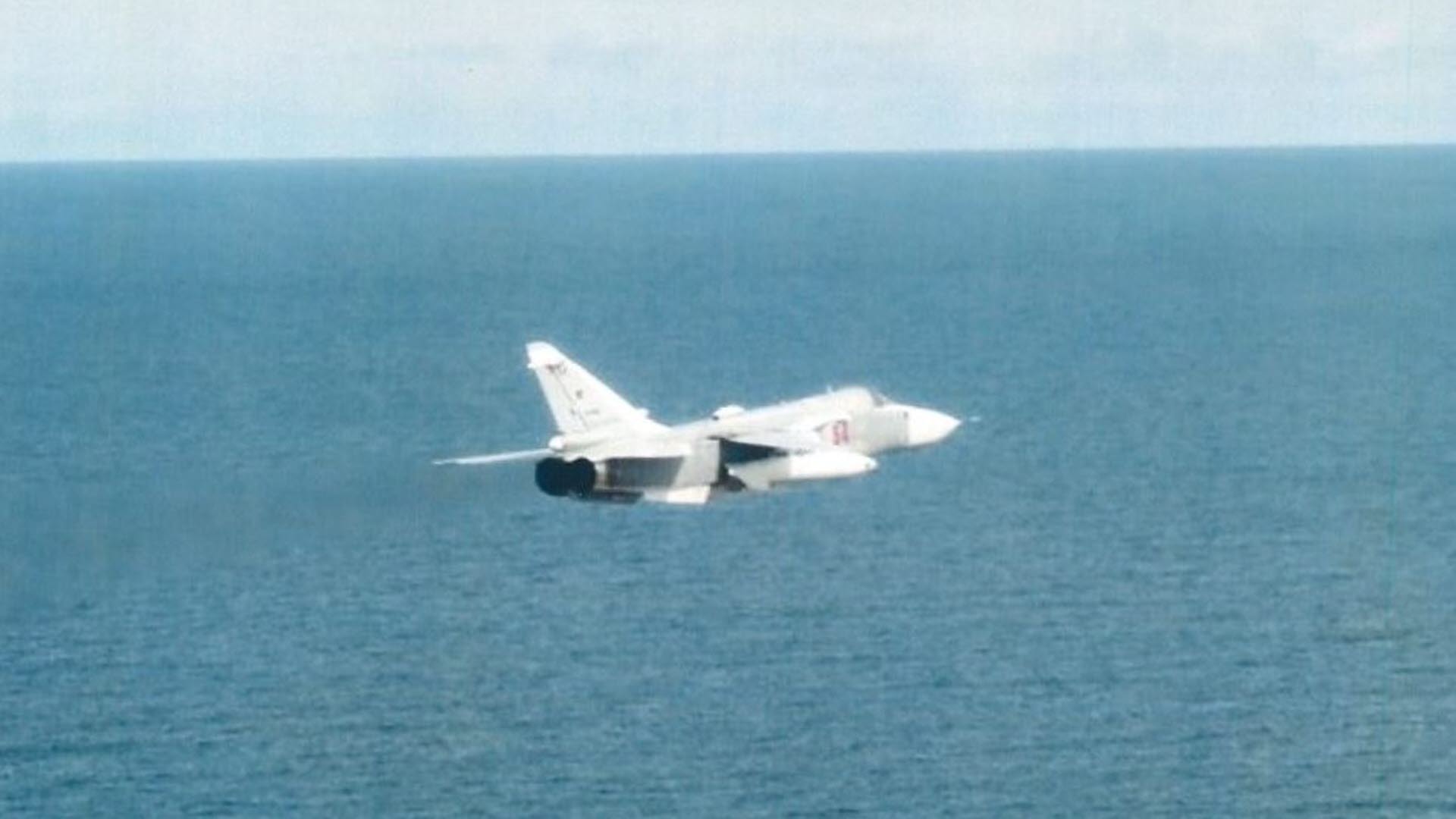Uncommon Knowledge
Newsweek is committed to challenging conventional wisdom and finding connections in the search for common ground.

Sweden and Finland, NATO’s newest members, reported separate airspace violations by Russian military planes in the past week amid a major alliance exercise in the region.
The Swedish air force scrambled a JAS 39 Gripen fighter aircraft on the afternoon of June 14 after a Russian Su-24 tactical bomber entered restricted airspace off the southern tip of the strategic Baltic Sea island of Gotland, the country’s armed forces said in a statement.
The Gripen “intercepted the aircraft after it failed to respond and continued on a course towards Swedish air space,” Swedish armed forces press secretary Henrik Nystrom told Newsweek on Monday.
The day after the incident, Maj. Gen. Jonas Wikman, Sweden‘s air force chief, told the public broadcaster Sveriges Radio in Stockholm that the Russian military jet flew about 3 miles into Swedish airspace—defined under international law as up to 12 nautical miles from the coastline—before being “removed” by the interceptor.
Wikman said Russia’s action was “unacceptable and shows a lack of respect for our territorial integrity.”
The Swedish official didn’t specify the exact variant of the Russian plane, but said it was a “reconnaissance” aircraft, suggesting it was likely an Su-24MR, known by the NATO porting name Fencer-E.
“We can’t comment on the intent of the aircraft, but it’s not the first time that a Russian aircraft has violated Swedish air space,” Nystrom said in the emailed statement.
It was Russia’s first known violation of Swedish airspace since Stockholm joined NATO in March, and since two Su-27 fighter jets and two Su-24 interdictors were accused of crossing into its skies in March 2022.
Separately on Friday, the Finnish Border Guard, under its interior ministry, said an ongoing investigation into a recent airspace violation off the city of Loviisa, on the Gulf of Finland, found that it had involved four Russian aircraft instead of one plane, as was previously suspected.
Last Monday, two Russian bombers and two Russian fighter aircraft entered 1.5 miles into Finnish airspace for approximately two minutes, the statement said. Antti Hakkanen, Finland’s defense chief, said the matter was being taken seriously.
It was the first confirmed violation of Finnish airspace by Russian aircraft since two MiG-31 fighter jets breached the boundary in August 2022. Helsinki joined NATO in April 2023.
While Sweden shares a sea border with the Russian city of Kaliningrad, Finland has an 830-mile land border with Russia’s northwest. It is unclear whether either government assessed the incidents to be deliberate or accidental.
Sweden’s armed forces, Finland’s border authority and NATO didn’t immediately respond to separate requests for comment. Russia hasn’t commented publicly on the allegations and it couldn’t be reached for comment.
On June 10, the day of the alleged airspace violation in southern Finland, the Russian defense ministry released footage of a four-plane patrol “in the airspace over the neutral waters of the Baltic, Barents and Norwegian seas.”
In the images, the ministry showed Tu-95MS and Tu-22M3 strategic bombers taking off from an airfield and said they were escorted by Su-30SM, Su-27 and Su-33 aircraft of the Russian air force and naval aviation.
For about five seconds in the official video, at least one Finnish air force F/A-18C Hornet could be seen monitoring the Russian air units.
“At certain stages of the route, the long-range bombers were accompanied by foreign fighter jets,” Russia’s defense ministry said, without elaborating. It said the sorties, which lasted up to six hours, were “conducted in strict accordance with international airspace usage rules.”
NATO’s relationship with Moscow remains highly strained more than two years into the Russia-Ukraine war. Its member states have sought to collectively isolate the Kremlin by imposing sanctions on the Russian economy and are now turning their attention to its lifelines—including China.
This month, dozens of alliance warships and warplanes, and some 9,000 personnel, began the 53rd edition of the annual Baltic Operations exercise, also known as BALTOPS.
The sea power drills in the strategic Baltic region— scheduled from June 7-20—are being led by the U.S. Naval Forces Europe-Africa alongside the Naval Striking and Support Forces NATO, the alliance’s maritime command.
Update 6/17/24, 4:30 a.m. ET: This article was updated with a comment from the Swedish armed forces.
Newsweek is committed to challenging conventional wisdom and finding connections in the search for common ground.
Newsweek is committed to challenging conventional wisdom and finding connections in the search for common ground.